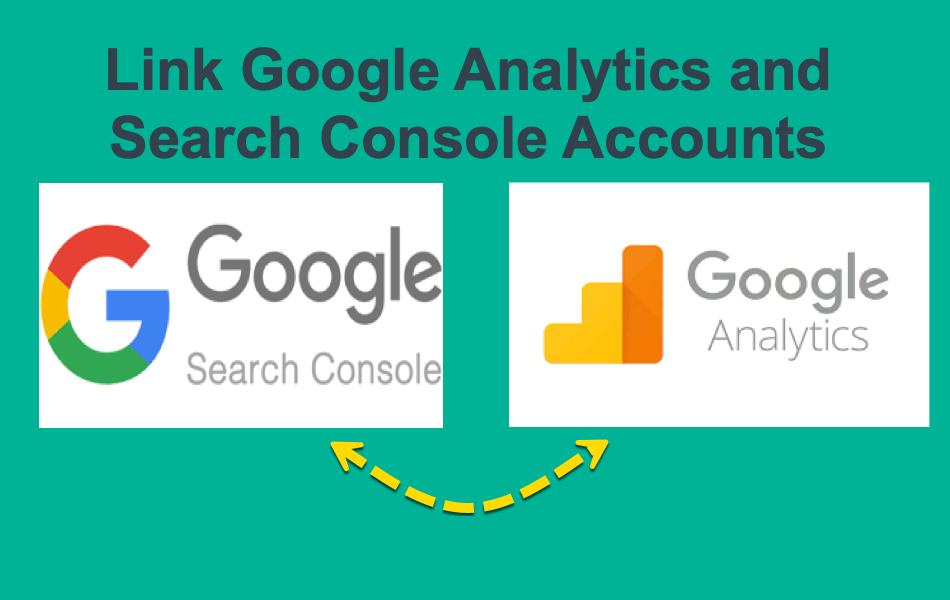Google Analytics is the leading website monitoring tool across the internet, where 72% of businesses choose it to improve their online marketing. Do you know? 60% of the daily clicks go for the first five organic search results. The above metrics describe the importance of SEO to increase your website ranking. Monitor your website’s performance regularly to overcome the barriers that restrict your site growth. Google analytics gives a hand to track your website.
Though many website owners use Google Analytics to track their website performance, most users fail to know the usage of analytics. It fails to use the Google Analytics feature to the fullest. Are you the one who wants to know about Google Analytics to track your website SEO? Here are the 12 best tips to analyze your website SEO with the Google Analytics tool.
1. Sync Search Console Account
 Do you want to see the full picture of Google Analytics? Just tie up your Google Analytics tool with Google Search Console. While doing so, you can easily identify the opportunities to improve your target keywords and rank your pages on search results.
Do you want to see the full picture of Google Analytics? Just tie up your Google Analytics tool with Google Search Console. While doing so, you can easily identify the opportunities to improve your target keywords and rank your pages on search results.
Google search console provides the type of keyword that people use to find your niche content and also the ranking of particular keywords. With this information, you can easily identify the ways to improve your site optimization and get a better ranking on Google.
2. Create Goals Related To SEO
Before starting your SEO campaign, set up your Google Analytics account by including your SEO goals with the creation of a conversion page. So, you will get a report of the people who have filled in all the information, not just the person who views the page. With Google Analytics, you can get the quality of organic visitors to your website instead of tracking it manually.
SEO goals mean generating leads from organic traffic. Using Google Analytics, get the organic traffic data for a page and the number of leads you get which helps to increase the conversion rate.
3. Make Use Of Organic Visitor Segment
Google Analytics provides the option to remove the spam traffic for getting the correct report. Crawlers and fake referrers are responsible for spam traffic which may spoil your accurate report. So, use filters to exclude the referral traffic, which solves your problem of getting incorrect reports.
Get only the organic traffic on Google Analytics by setting up a custom dashboard to show organic traffic.
4. Check Traffic From Referral Source
The most important ranking factor on search engines is the backlinks. If you have published a guest post with a backlink from a high-traffic website and need to know how many users visited your website through that link, you can use a referral traffic source report to check.
To find the report, tap on Acquisition -> Channels -> Referrals and get the traffic report. The data not only provides you the traffic but gives you opportunities to publish guest posts from a website that you have linked before. Use this tactic to gain more quality backlinks from different resources and increase your ranking faster.
5. Identify Top-Performing Content
Google Analytics provides a way to find the top-performing content page of your website that helps to optimize them more. You may add fresh content or insert the perfect call to action to the top-performing content and gain the maximum return by uplifting your site’s ranking.
Track the effectiveness of specific pages and find the internal link that gets maxim clicks with the Google Analytics tool.
6. Find Your Page Engagement
User engagement is a valuable metric to run a successful SEO campaign. An essential metric to focus on is the bounce rate which provides the percentage of users who visit and leave your site without performing any actions. Your bounce rate decides how your visitors engage with your website.
If the bounce rate is high, it affects your page rank. So, monitor your bounce rate regularly on the Overview report and work on reducing it for gaining higher engagement.
7. Measure Mobile Friendliness
Checking mobile-friendliness for your website is essential to track your SEO performance. In 2019, Google announced that it uses the mobile version of your website for indexing and ranking. To your website performance on other devices, tap on the Google Analytics tool to see how users surf your site on different devices.
Go to Acquisition -> Search Console -> Devices to get the detailed report of users on different devices.
8. Check Your Site Speed
Focus on your site speed regularly, which is one of the important SEO factors. Google finds the user experience of your site and the loading speed. If your site struggles in loading, then it is harmful to your SEO campaign.
Google Analytics provides you the site speed report or uses the PageSpeed insights to see your site’s loading speed.
9. Fix Broken Links
 Generally, broken links are links that currently do not exist on your site. When there is a broken link, 404 errors will rise while browsing the particular link and shows the impact on your SEO ranking.
Generally, broken links are links that currently do not exist on your site. When there is a broken link, 404 errors will rise while browsing the particular link and shows the impact on your SEO ranking.
Use Google Analytics to track broken links on your website and fix the error link quickly. You can either track the broken link automatically or use MonsterInsights to get a report through Google Analytics.
10. Track SEO Performance Of Specific Page
Monitor the SEO performance for a specific page to find the traffic and evaluate your content. Get the following conclusions from the Google Analytics report:
- The landing page that results in conversion
- The page that the visitors spend more time in reading or interacting
- The landing page that earns higher visibility and best ranking on SERP
- Find the page which requires additional SEO rank to increase the performance
In Google Analytics, choose Acquisition -> All Traffic -> Channels -> Organic channels. Then, move on to the Landing page to find the traffic of your landing pages.
11. Monitor Focus Keyphrase
The success of SEO mainly depends on the keyword which decides the website behavior. Integrating your Google Analytics with GSC and tapping onto Acquisition -> Search Console -> Landing page will show you the report of your keyword.
With Google Analytics, you can get the performance report of your specific keyword and their current ranking. Monitoring the information regularly allows you to make effective adjustments in your SEO strategy.
12. Manage PPC
Google Analytics helps to make money with the perfect usage of all advertising efforts. The tool helps us to know the keywords that convert into sales. With this, you will find the right keyword responsible for ranking. Then, move to the advertising field on Google, where you can monitor all your advertising efforts through Google Analytics.
Do you know? 86% of SEO experts use PPC data to track SEO campaigns.
Final Thoughts
Are you ready to use the power of Google Analytics to harness your website SEO? Go with the stunning tips mentioned above to find the data about your website and improve your SEO performance.
The time spent on Google Analytics is 100% worth it to gain SEO improvements in your website.





















